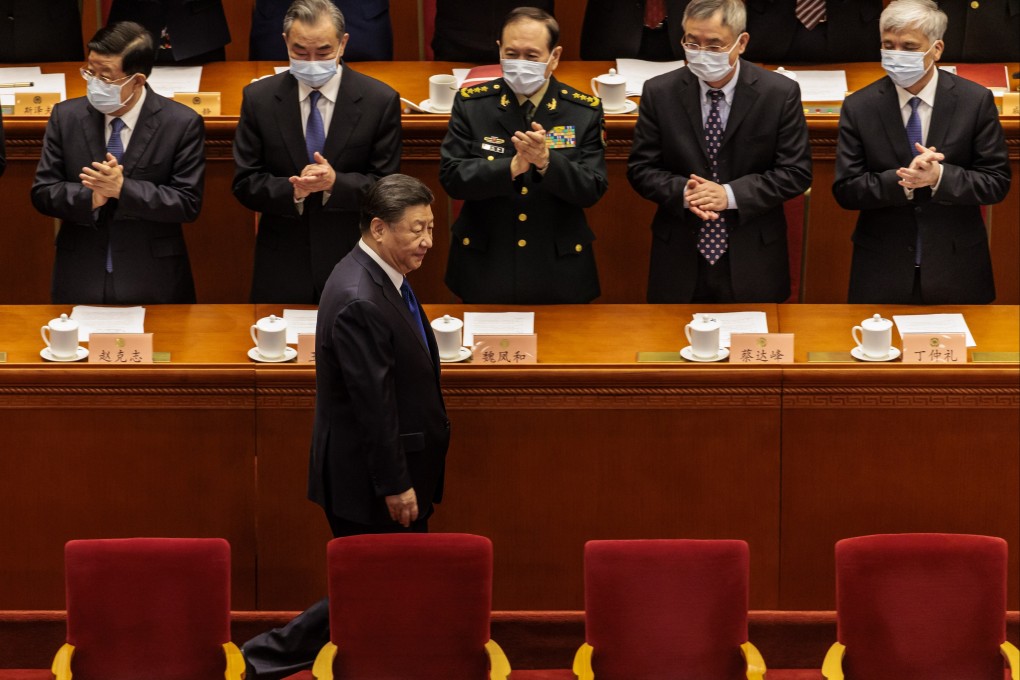Advertisement
The more things change, the more China’s Xi Jinping focuses on stability
- China’s president projects stability in a ‘turbulent era’ as he is about to start a third term as the Communist Party’s head
- Xi signalled assurance to the coal and agricultural sectors and contrasted the ‘orderly governance of China’ with ‘the chaos of the West’
Reading Time:4 minutes
Why you can trust SCMP
59

In the annual legislative session held over the past week in Beijing, none of the reports were delivered by President Xi Jinping himself, and the top leader did not chair any press conferences. But no one has any doubt whose show it was.
Xi’s name was mentioned 12 times in the annual government report delivered by Premier Li Keqiang on March 5. Senior and mid-level officials lavished praise about Xi’s personal leadership in almost every group discussion of the National People’s Congress.
The government report pledged to “maintain social stability” for the Communist Party’s national congress, a five-yearly power transition set to take place this autumn. As traditional retirement rules for party leaders become increasingly blurred, few incumbent leaders are certain to stay.
Advertisement
An exception is Xi, who is set to start his third term as the party’s head, the first Chinese leader to do so in decades.
As Li Keqiang announced on Friday he would step down as premier next year, he said China’s economy would overcome difficulty under the party’s leadership headed by Xi.
Advertisement
Advertisement
Select Voice
Choose your listening speed
Get through articles 2x faster
1.25x
250 WPM
Slow
Average
Fast
1.25x
